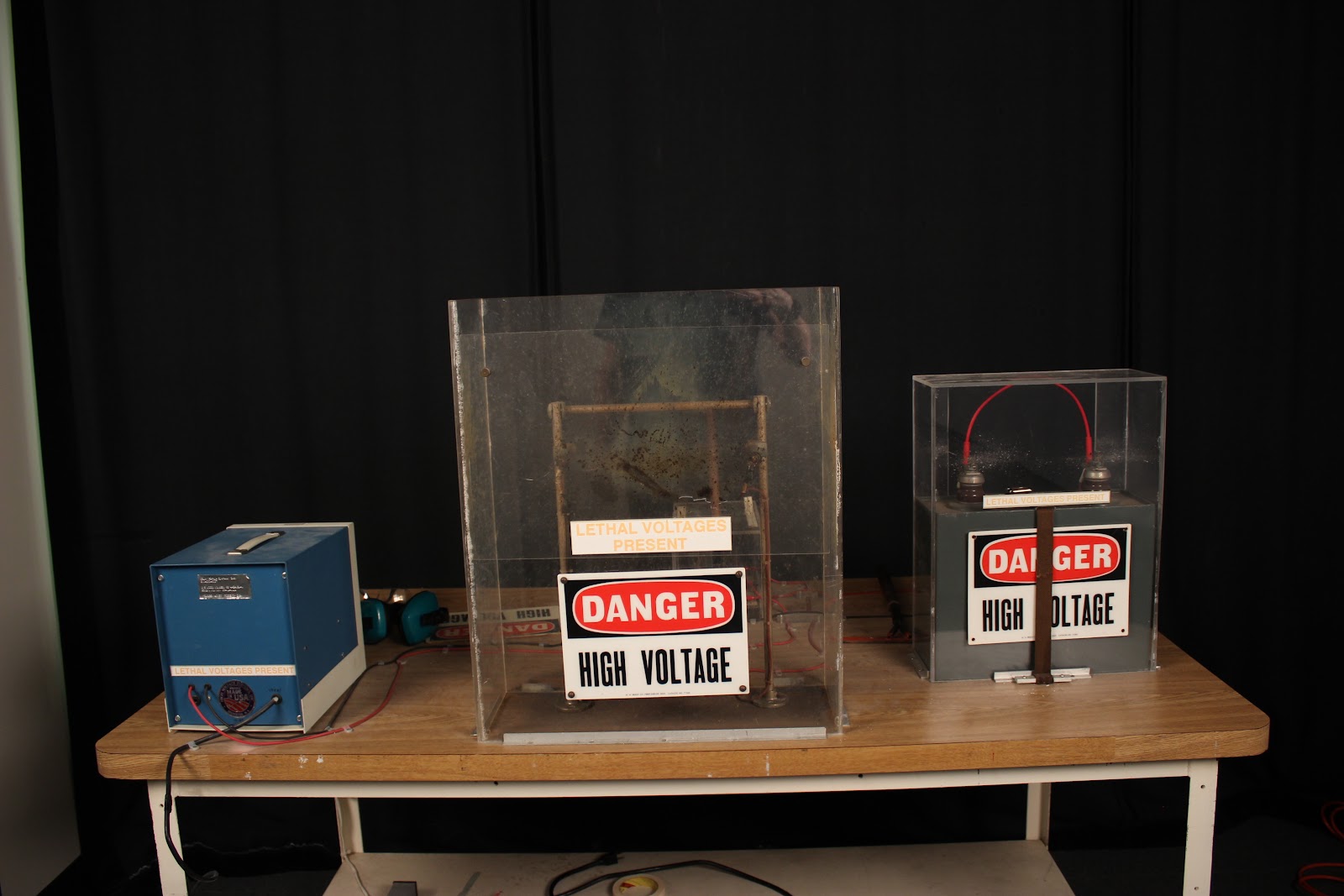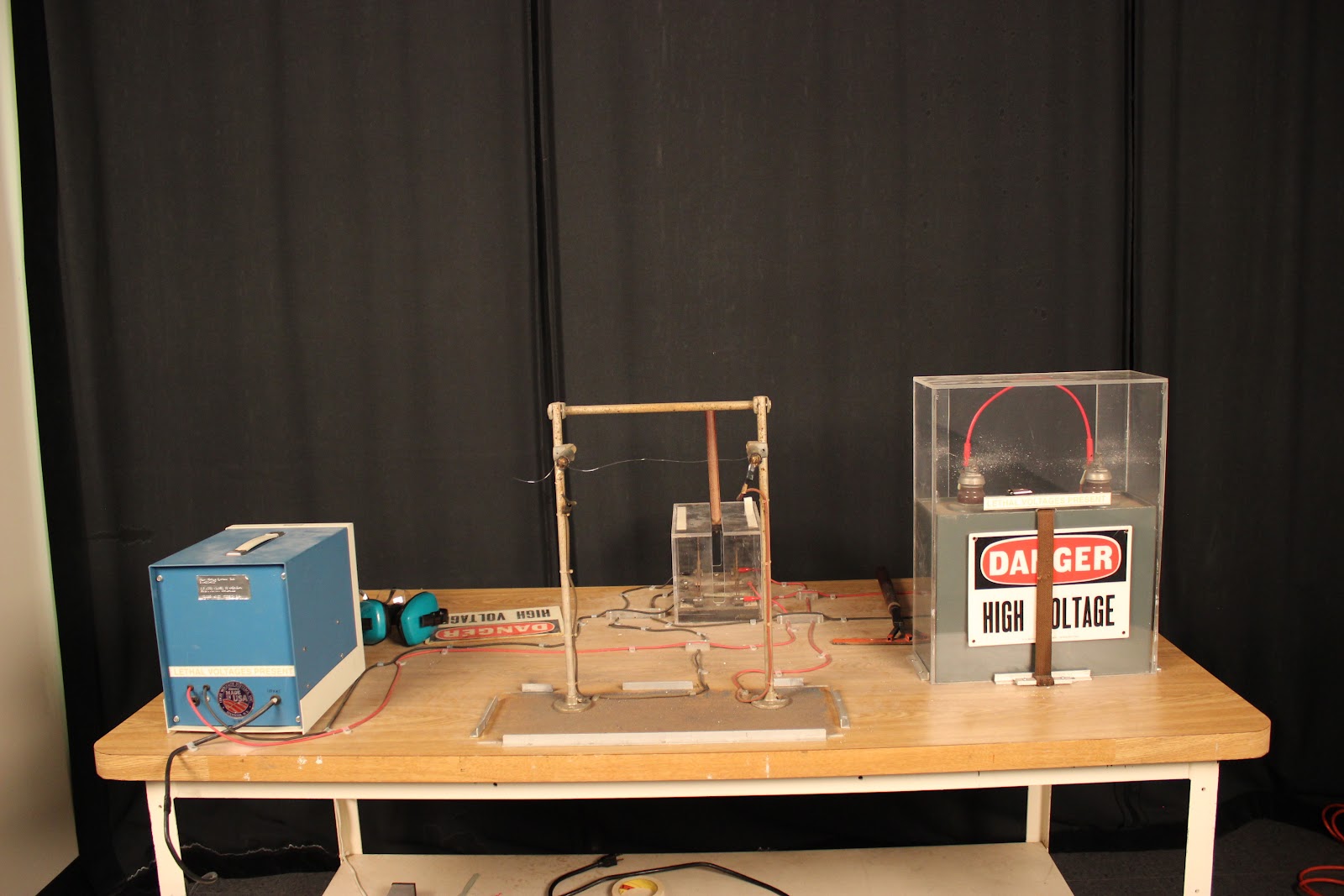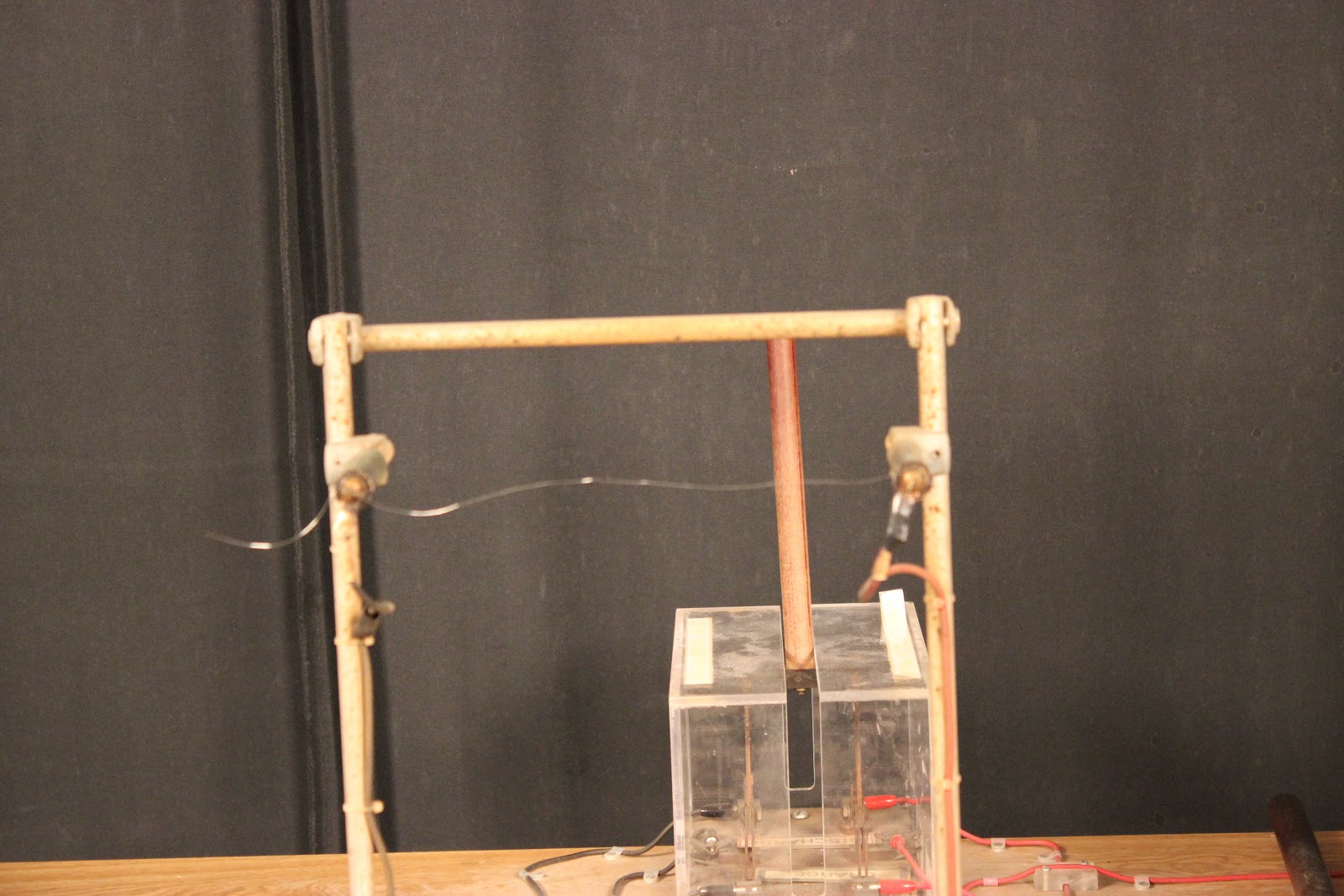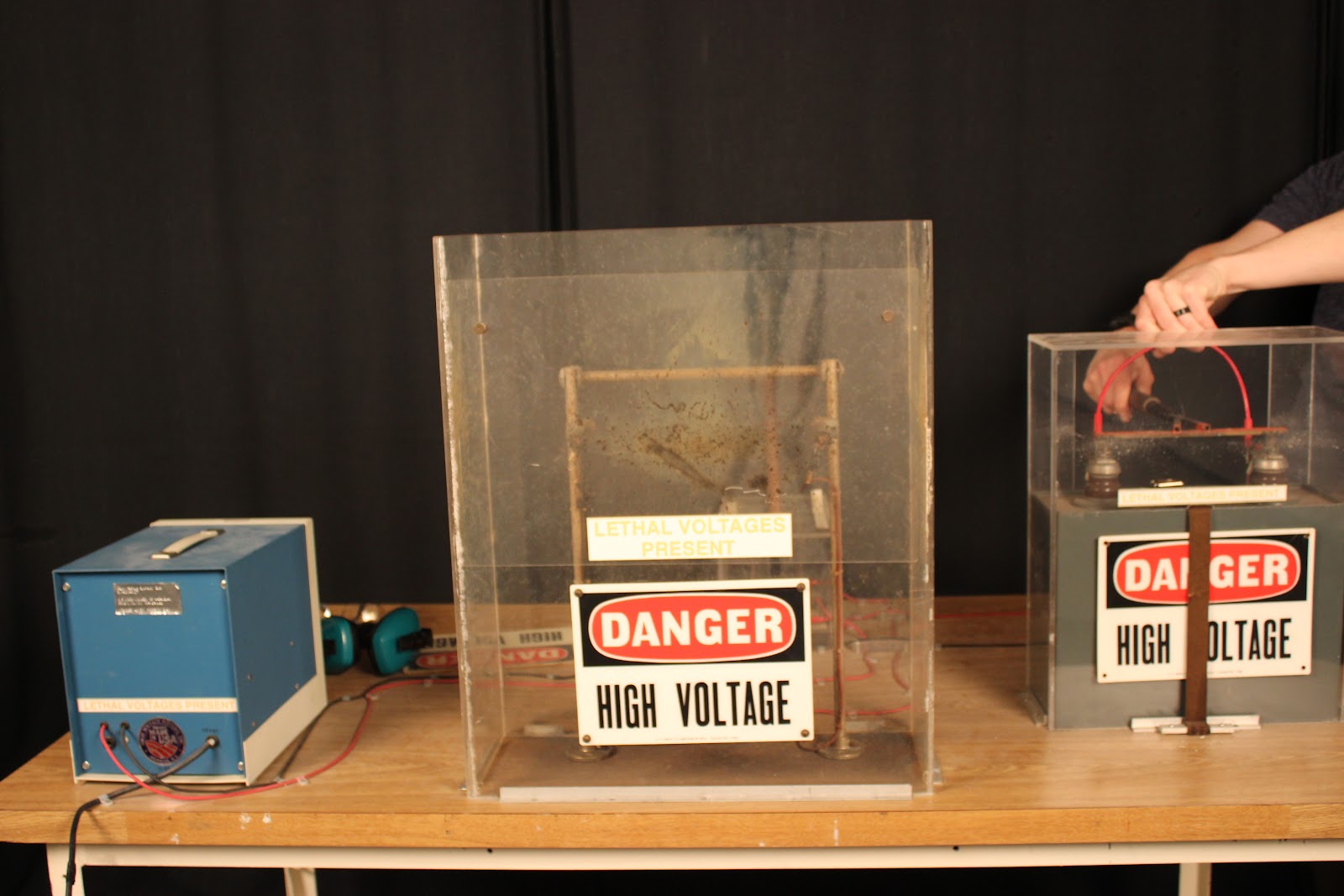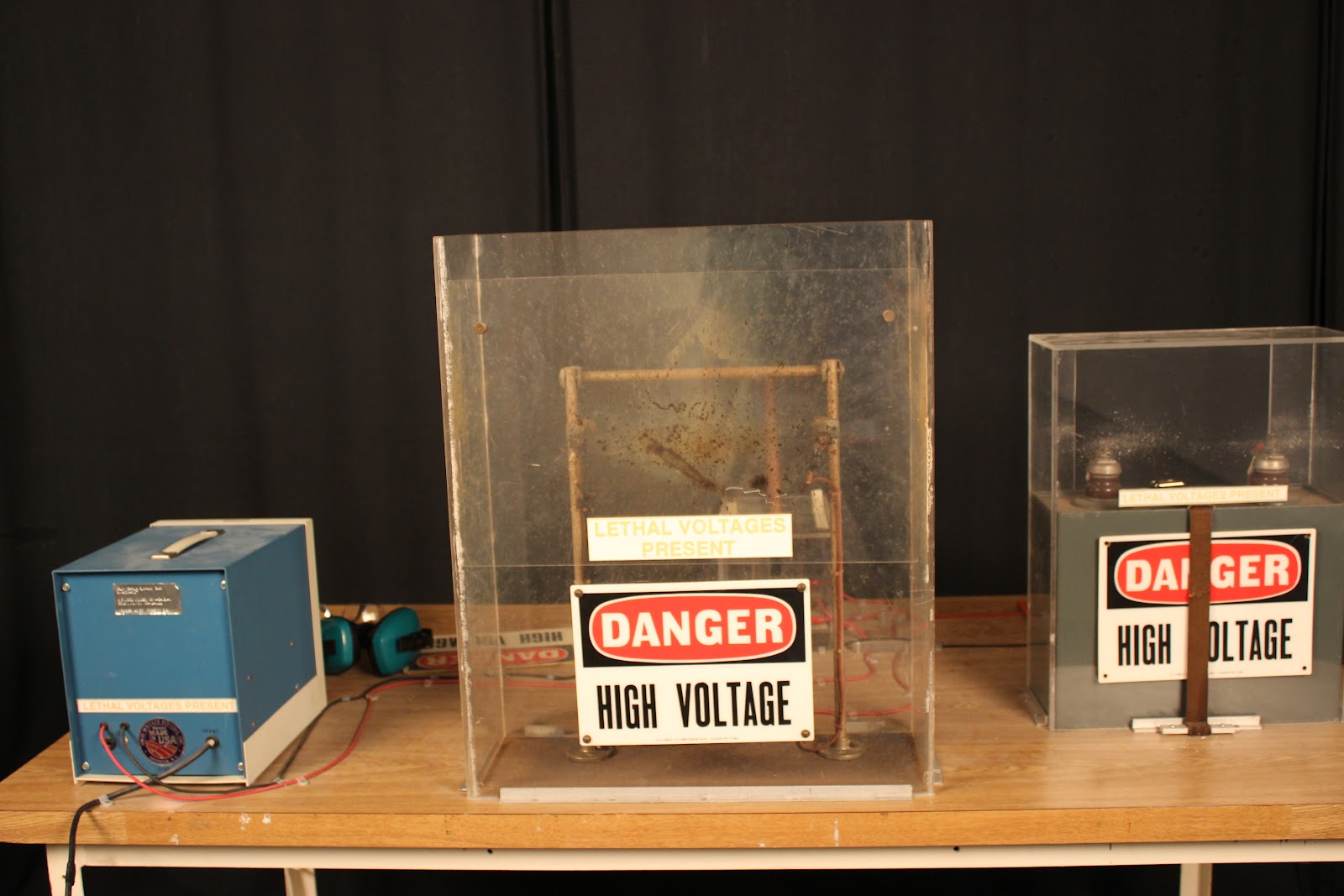Exploding Wire (E6) [5C30.20]
Dielectrics
Description
A 100 μF oil-filled capacitor is charged to 4 KV. This takes approximately 15 to 20 minutes. The capacitor is discharged through a 12 inch length of iron wire. The wire explodes with a loud bang and a showering of sparks. A plexiglass shield is used to prevent the sparks from reaching the audience. This demonstrates the large amounts of power capacitors can produce. The energy stored is about 800J which gets discharged in microseconds.
Video
https://www.youtube.com/watch?v=YWUkBvSSFpI
Materials
- Huge oil-filled capacitor (100 μF, 4000V)
- 5000V DC power supply (or at least 4000V)
- Iron wire of length about 100mm diameter
- High voltage switches (long plastic handles)
- Safety plastic shield.
Instructions
Set-Up
- Carefully lift off plexiglass screen surrounding the wire setup
- Wrap wire around screw, between the washers and tighten both ends (left then right) so as to secure the wire
- Replace plexiglass screen
DANGER - LETHAL VOLTAGES PRESENT
Charging & Discharging Sequence
- Connect the terminals of the capacitor with the shorting rod and remove the shorting cable from capacitor
- Turn on Power Supply
- Set voltage knob on power supply to 4K V (This will charge capacitor at 4KV - 1.6mA)
- Position knife switch to CHARGE position
- When capacitor is charged to desired voltage, turn off power supply
- Open knife switch
- Turn off room lights
- Position switch to DISCHARGE position
- Option - Position knife switch to charge position to read the voltage still present across the capacitor - open knife switch
- Discharge the capacitor with the shorting rod to show there is still a charge on the capacitor
- HOLD SHORTING ROD ACROSS CAPACITOR TERMINALS AND REPLACE SHORTING CABLE
NOTE: It takes about 15-20 minutes to charge the capacitor to 4K V, but anything above 3K V should be enough to vaporize the wire.
Other
Tags: 8.02, capacitor
WARNING: The charge on the capacitor could be lethal.
